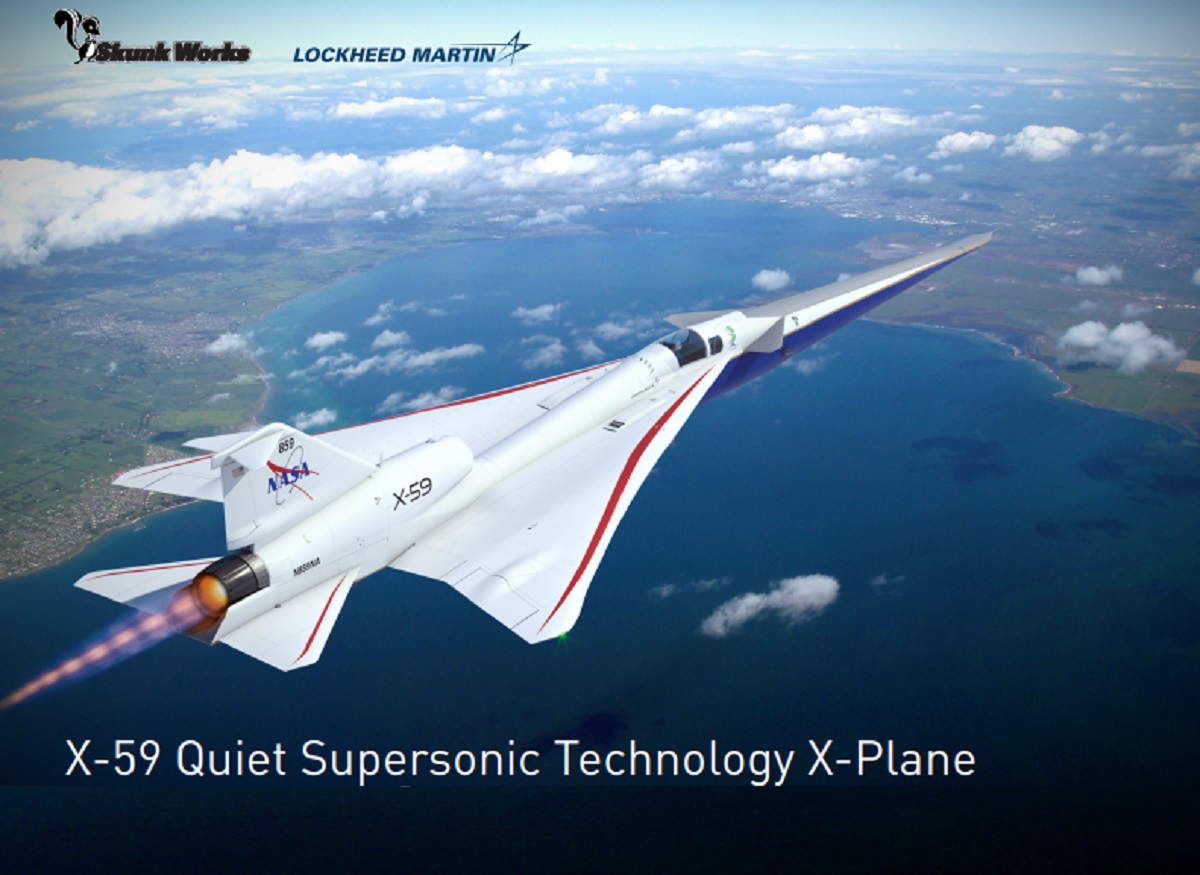Lockheed Martin Skunk Works® rolled out the X-59, a unique experimental aircraft designed to quiet the sonic boom, at a ceremony in Palmdale, California. The ceremony marked a significant milestone in Lockheed Martin’s and NASA’s decades-long journey to solve one of the most persistent challenges of supersonic flight – the sonic boom. Rollout ceremonies are a long-standing aviation tradition, and in the case of the X-59, it celebrated technical advancements, collaboration and innovation that stemmed from years of research, development and production of a one-of-a-kind technology demonstrator aircraft that will reduce the loudness of sonic booms to a gentle thump.
“The entire X-59 team leaned into the expertise of both legendary organizations, NASA and Lockheed Martin, to ensure success for this program. I am extremely proud of everyone who made this historic moment possible,” said Greg Ulmer, executive vice president, Lockheed Martin Aeronautics.
“We’re thrilled to take on this challenge alongside NASA, whose quiet supersonic technology mission will have lasting, transformational impacts for people around the world. This project is just one example of the broader ingenuity of our industry as we continually strive to push the envelope of what’s possible,” said John Clark, vice president and general manager, Lockheed Martin Skunk Works.

Lockheed Martin, NASA and government leaders attended the ceremony to include:
- Greg Ulmer, executive vice president, Lockheed Martin Aeronautics
- John Clark, vice president and general manager, Lockheed Martin Skunk Works
- Pam Melroy, NASA Deputy Administrator
- Jim Free, NASA Associate Administrator
- Bob Pearce, NASA Associate Administrator
- Dee Dee Myers, California’s Senior Economic Advisor to the Governor
Next, the aircraft will complete ground tests including engine-run and taxi tests before its next major milestone, first flight, later this year. After the aircraft is validated in initial flight tests, it will move into the acoustic testing phase. This phase will include flights over populated areas to provide U.S. and international regulators with statistically valid data required to help approve new rules that could allow quiet commercial supersonic flight over land. This would cut commercial flight times to half of what they are today, transforming travel for people around the world. Headquartered in Bethesda, Maryland, Lockheed Martin Corporation is a global security and aerospace company that employs approximately 116,000 people worldwide and is principally engaged in the research, design, development, manufacture, integration and sustainment of advanced technology systems, products and services.














